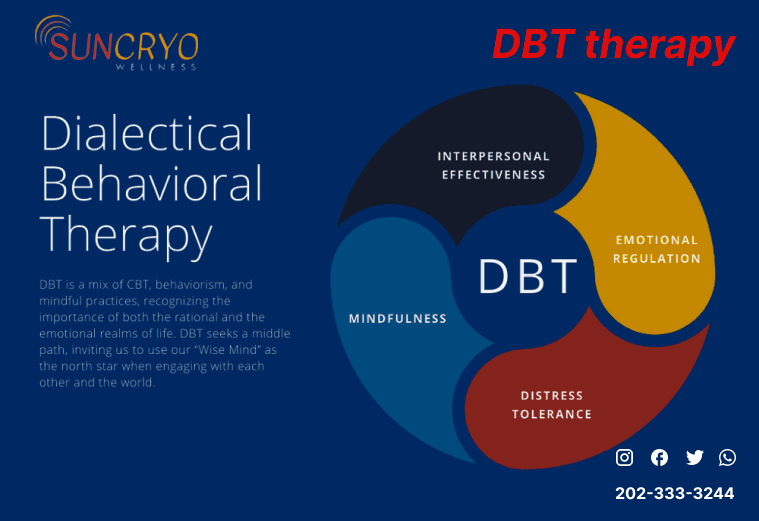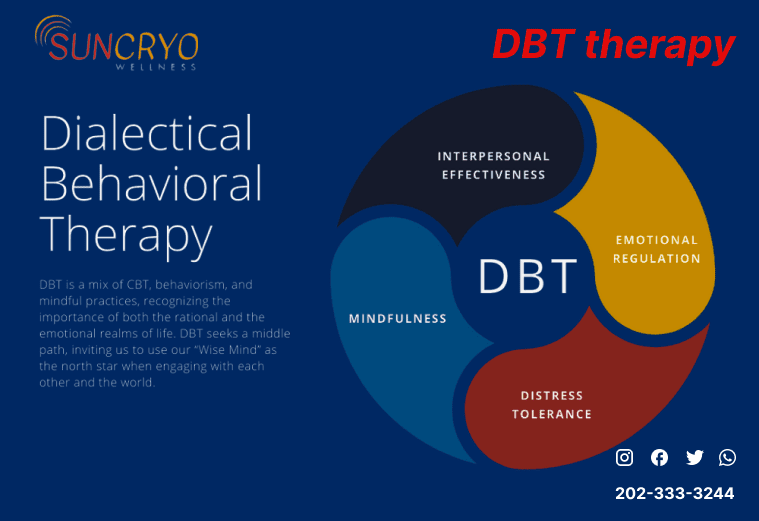DBT therapy
[current_date]

DBT stands for Dialectical Behavior Therapy. It is a type of cognitive-behavioral therapy (CBT) that was developed in the late 1980s by psychologist Dr. Marsha M. Linehan. DBT was initially designed to treat individuals with borderline personality disorder (BPD), but it has since been adapted and used effectively for a wide range of mental health issues.
DBT is based on the concept of dialectics, which refers to finding a balance between seemingly opposing factors. In the context of therapy, this means balancing acceptance and change. The main goals of DBT are to help individuals develop coping skills, improve emotional regulation, build self-awareness, and enhance their ability to manage distressing emotions and behaviors. for further information click on the given link https://georgetownsuncryo.com/
DBT incorporates several core components, including:
Individual Therapy
Clients meet one-on-one with a trained therapist for weekly sessions. These sessions focus on addressing specific challenges and behaviors the individual is facing, setting goals, and developing skills to cope with difficult emotions and situations.
Group Skills Training
Clients participate in group sessions to learn and practice coping skills. These skills are usually taught in four modules: mindfulness, distress tolerance, emotion regulation, and interpersonal effectiveness.
Phone Coaching
DBT therapists often offer phone coaching between sessions to provide support and guidance when clients face distressing situations or crises.
Consultation Team
DBT therapists participate in regular consultation team meetings to support each other in providing effective treatment and address any challenges that arise during therapy.
DBT is particularly effective for individuals who struggle with intense emotional responses, impulsive behaviors, self-harm, and difficulties in interpersonal relationships. It has been used successfully in the treatment of various conditions, including borderline personality disorder, depression, anxiety disorders, substance use disorders, eating disorders, and post-traumatic stress disorder (PTSD), among others.
It’s important to note that DBT should be delivered by licensed mental health professionals who have received specialized training in this approach to ensure its effectiveness and safety.
